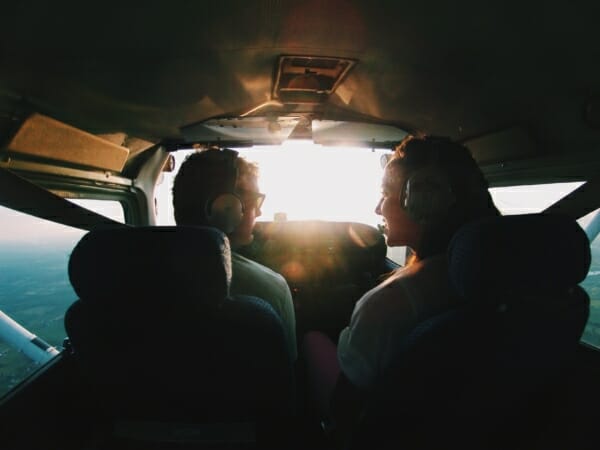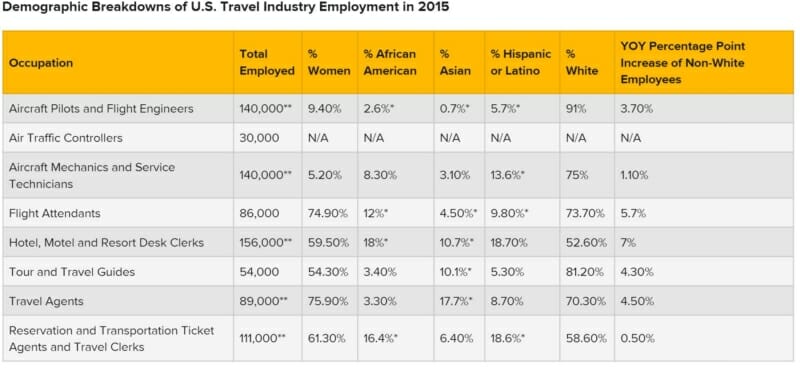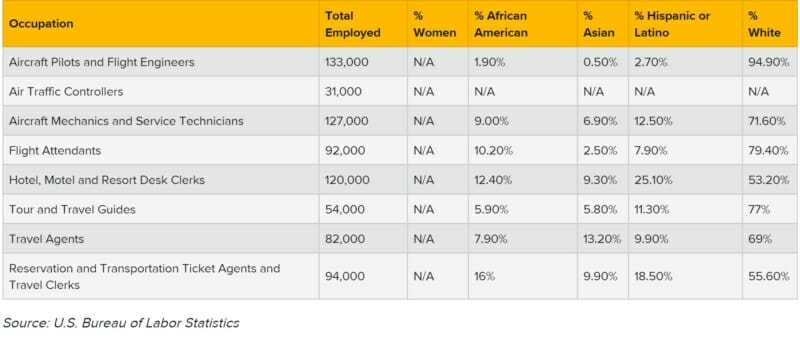Why the Travel Industry Should be a Beacon of Diversity

When you stop to think about it, travel is perhaps the one thing we all have in common. Man or woman, black or white, old or young, rich or poor. As people, we all have that innate sense of curiosity and a desire to explore different parts of the world.
Across the board, humanity is inspired by this single idea. It's often what brings us together. It's the common goal that we all share. And yet that diversity is not apparent in the industry that exists to meet our demand to travel. According to a recent industry report on diversity from Skift, the overwhelming majority of airline pilots are white men. Over 80% of tour guides in America are white. Less than 4% of US travel agents are African American.
So it seems that there's a problem here. But morality and social equality aside, how does it affect the travel industry?
How does limited diversity affect travellers?
Authenticity
If there's one thing that travellers look for at every stage of the vacation experience, it's authenticity. They want to deal with people with local expertise as part of the booking process. They increasingly want to be immersed in local culture when travelling abroad. If any issues arise during or after the trip, they want to be able to contact someone real, someone clued-up and knowledgeable.
All of these things can and will be undermined by a lack of staff diversity across the board.
The bottom line is this: A whitewashed travel industry simply isn't representative of either its customers or the locations it sends them to. This in turn undermines the credibility of many agencies and operators claiming to be 'in touch' with what travellers want to experience and the destinations they are taking them to.
Low diversity is less appealing to minorities growing in spending power
Okay, so we get that having travel staff representative of the consumers they serve is an important part of the process. But what many agencies and travel operators don't realise is that a whitewashed, outward-facing workforce is off-putting to a huge chunk of potential travellers.
“When one considers the rapidly increasing buying power of women and people of color, the opportunity costs for a lack of diversity can be massive,” said Genhi Bailey, Director of Diversity and Inclusion from the law firm DLA Piper while speaking to Fortune. To give you a clear example, according to travel marketing firm MMGY Global, African-American vacation spending grew 52% from 2015 to 2016. Boom.
Diversity leads to better products
Again speaking with Fortune, Gillian Tans, CEO of Booking.com, pointed out the positive impact that staff diversity has on productivity and creativity. “We have built out the diversity of our product teams and we saw the caliber of our testing and experimentation improve significantly,” she said. Booking.com "employs people from 100 different nationalities, 50% of whom are women. We found we were able to create better, customer-centric product features more quickly with a more diverse product team.”
Diversity in the travel industry - the numbers
In Skift's annual travel industry diversity report, we have to first point out that the data was taken from the US travel industry, and therefore the results can't be generalised to agencies and operators around the world. But what we can say is that the following statistics represent a worryingly low level of diversity, even if it is slowly improving in the US.
Every travel industry job sector surveyed in Skift's report increased its percentage of non-white employees from the previous year. But the numbers are still low. Take a look at the table below.

According to the U.S. Department of Labor’s Bureau of Labor Statistics, airline pilots represent the most white faces of any occupation in the travel industry last year, at a whopping 91%. Clearly, the travel industry can't be held solely responsible for this; there are of course plenty of social and economic factors involved in becoming a pilot. The percentages of African-American, Asian and Hispanic or Latino airline pilots, however low, did increase by 3.7%, and nearly 10% of pilots and flight engineers were women.
Indeed, the strong presence of women across the board shows that a flourishing travel industry owes much to the fairer sex.
It is perhaps travel agencies and tour guides that show the most surprising levels of non-diversity. 81% and 70% respectively were found to be white. In a country as multicultural as America, this is a trend that can't be ignored.
Travel Industry diversity doesn't change overnight
There are two things to take note of here. First, these figures from Skift only represent the situation in America. And second, things are slowly beginning to improve, especially if we compare the figures above to those from the year before, below:

Despite slow progress in the right direction, travel brands’ employees simply have to represent the increasing diversity of the world’s travelers. The fact is that, in the USA at least, the travel industry remains a sea of white faces.
So what can the travel industry do?
This is a difficult question to answer. There are plenty of ways to improve the level of diversity across the world's travel companies. Perhaps it's up to governments to step in and enforce positive discrimination. Perhaps the limitations on minorities placed by society and economics will slowly recede, allowing the travel industry to become increasingly representative of the populations it serves.
Ultimately, those in powerful positions in the travel will come to realize that diversity is something customers value. More importantly, it's something that customers notice. It's in their interest to sort out this problem. The sooner operators' tours, trips, and bookings are planned, processed and managed by a more diverse workforce, the sooner the growing spending power of women and minorities will gravitate towards them.